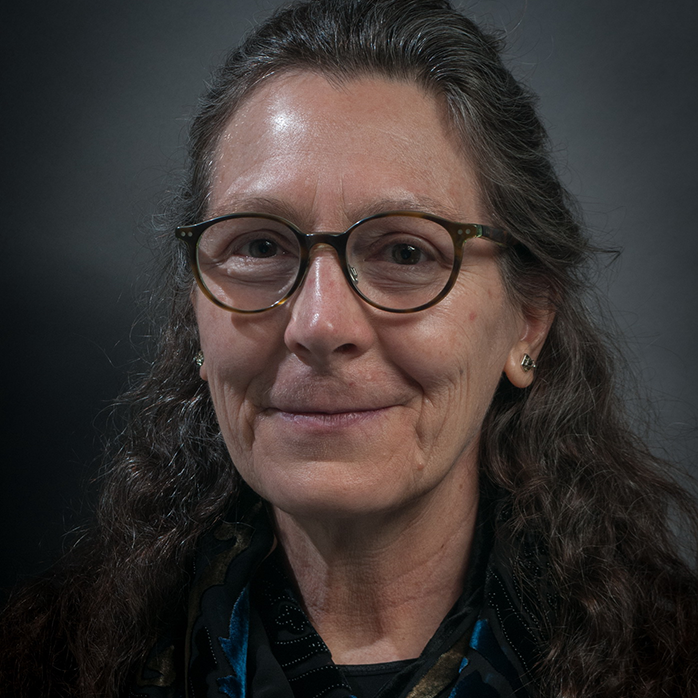CS&E Professor Victoria Interrante wins VGTC Virtual Reality Career Award

Congratulations to Victoria Interrante for winning the prestigious Virtual Reality Career Award from the Visualization & Graphics Technical Committee (VGTC) during the 2020 IEEE Virtual Reality conference.
Professor Interrante was selected for this honor in recognition of her lifetime contributions to visualization and visual perception for augmented and virtual reality. The IEEE VGTC Virtual Reality Career Award has been given to an individual every year since 2005 to honor that person’s lifetime contributions to virtual and augmented reality.
“This VTGC Career Award is significant and must be earned; it is a deeply fitting recognition for Vicki's impact on the international stage, and a reminder of how lucky we are to have Vicki as a colleague, scholar, teacher, and friend at the University of Minnesota,” shared Associate Professor Dan Keefe, a colleague in the graphics and immersive computing research area of the Department of Computer Science & Engineering.
“Her modesty might prevent her from saying so herself, however I will tell you as a fellow member of the virtual reality research community that Vicki's research is second to none in terms of the impact and influence it has had on the communities,” continued Keefe. “The new ideas she has introduced through her research, and even new conferences she has started to advance the study of these topics, have propelled the international research community in exciting new directions.”
Her research has primarily focused on applying insights from visual perception and cognition to the development of more effective virtual reality experiences, including a large body of work addressing the need to enable accurate spatial understanding in immersive architectural environments. At the University of Minnesota, Professor Interrante applies her world-class research and leadership skills into all her work with colleagues and students. She serves as the director for the interdisciplinary Center for Cognitive Sciences, collaborates with faculty in a wide variety of fields, as well as mentors a diverse array of graduate and undergraduate students.
An illustrious academic and professional career
Interrante received her Ph.D. in 1996 from the University of North Carolina at Chapel Hill, where she was co-advised by Professors Henry Fuchs and Stephen Pizer. Her dissertation research focused on designing novel representational methods for supporting the accurate spatial perception and 3D understanding of layered transparent surfaces, primarily for applications in radiation therapy treatment planning.
She joined the faculty at the University of Minnesota in 1998, after a two-year position with the Institute for Computer Applications in Science and Engineering at NASA Langley, where she worked on the development of data visualization methods to facilitate the understanding of 3D fluid flows. Soon afterward, she received the 1999 Presidential Early Career Award for Scientists and Engineers (PECASE) in recognition of the potential value in her research efforts at the intersection of computer graphics, visualization and perception. In 2004, she co-founded and served as the first general co-chair of the ACM Symposium on Applied Perception in Graphics and Visualization, and since 2015 has served as co-editor-in-chief of the closely affiliated ACM Transactions on Applied Perception.
A pillar in the IEEE virtual reality community
Over the years, Interrante has been incredibly active in the VR community. She began attending the IEEE VR annual conference in the late 1990s, and her involvement in VR research intensified in the early 2000s, when she began a longstanding collaboration with Professor Lee Anderson from the Department of Architecture aimed at harnessing the potential of immersive virtual environments technology to more effectively support the process of conceptual design in architectural education and practice. Over the years, her research has also addressed multiple challenges related to embodiment and presence, as well as enhancing locomotion in VR.
In addition, Professor Interrante has a long history of service in multiple capacities within the VR research community. She was an editorial board member of the IEEE Transactions on Visualization and Computer Graphics from 2015–2019 and contributed to the EuroVR conference as co-general chair in 2017 and co-program chair in 2018 and 2019. She has taken on multiple leadership and support roles for the IEEE VR Conference, including stints as workshops, panels, tutorials, and posters co-chair, as well as co-general chair in 2014, co-program chair in 2015–2017, and steering committee member from 2016–present. In 2016–2017 she helped to initiate the IEEE VGTC Virtual Reality Best Dissertation Award to help recognize and promote the accomplishments of the newest generation of emerging VR researchers.
With this award, Victoria Interrante joins fellow VR luminaries, such as Fred Brooks and her Ph.D. advisor Henry Fuchs, as recipients of the Virtual Reality Career Award. Please join the entire CS&E community in congratulating Professor Victoria Interrante on this tremendous recognition.